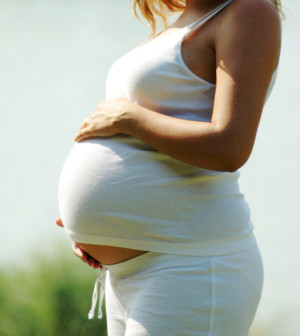- The Best Time of Day to Drink Bone Broth to Maximize Health Benefits
- 8 Ways to Increase Dopamine Naturally
- 7 Best Breads for Maintaining Stable Blood Sugar
- Gelatin vs. Collagen: Which is Best for Skin, Nails, and Joints?
- The Long-Term Effects of Daily Turmeric Supplements on Liver Health
- Could Your Grocery Store Meat Be Causing Recurring UTIs?
- Are You Making This Expensive Thermostat Error This Winter?
- Recognizing the Signs of Hypothyroidism
- 10 Strategies to Overcome Insomnia
- Could Artificial Sweeteners Be Aging the Brain Faster?
Size of Fetus May Affect Stillbirth Risk


Fetuses that are either too small or too large are at increased risk for stillbirth, a large new study says.
Researchers analyzed all the stillbirths that occurred over 2.5 years at 59 hospitals in five regions of the United States. They found that abnormal fetal growth was associated with between 25 percent and 50 percent of the stillbirths.
Stillbirth refers to a fetal death that occurs during pregnancy at 20 weeks’ gestation or later, according to the American College of Obstetricians and Gynecologists.
The news study found that fetuses that were small for gestational age had a threefold to fourfold higher risk of stillbirth compared to those with normal weight. Being large for gestational weight was also associated with a greater likelihood of stillbirth.
The study appeared online April 22 in the journal PLoS Medicine.
The findings suggest that strategies to prevent stillbirth should focus on identifying fetuses that are small or large for gestational age, according to a journal news release.
This is not part of current practice, noted study author Radek Bukowski and colleagues from the U.S. National Institute of Child Health and Human Development-funded Stillbirth Collaborative Research Network.
They said that classifying the 10 percent of fetuses at the extreme ends of being too large or small as being abnormal could identify as many as 46 percent of future stillbirths.
While the study found an association between abnormal fetal size and risk of stillbirth, it did not establish a cause-and-effect relationship. Some aspects of the study’s design could affect accuracy, the news release noted.
More information
The U.S. National Library of Medicine has more about stillbirth.
Source: HealthDay
Copyright © 2026 HealthDay. All rights reserved.










